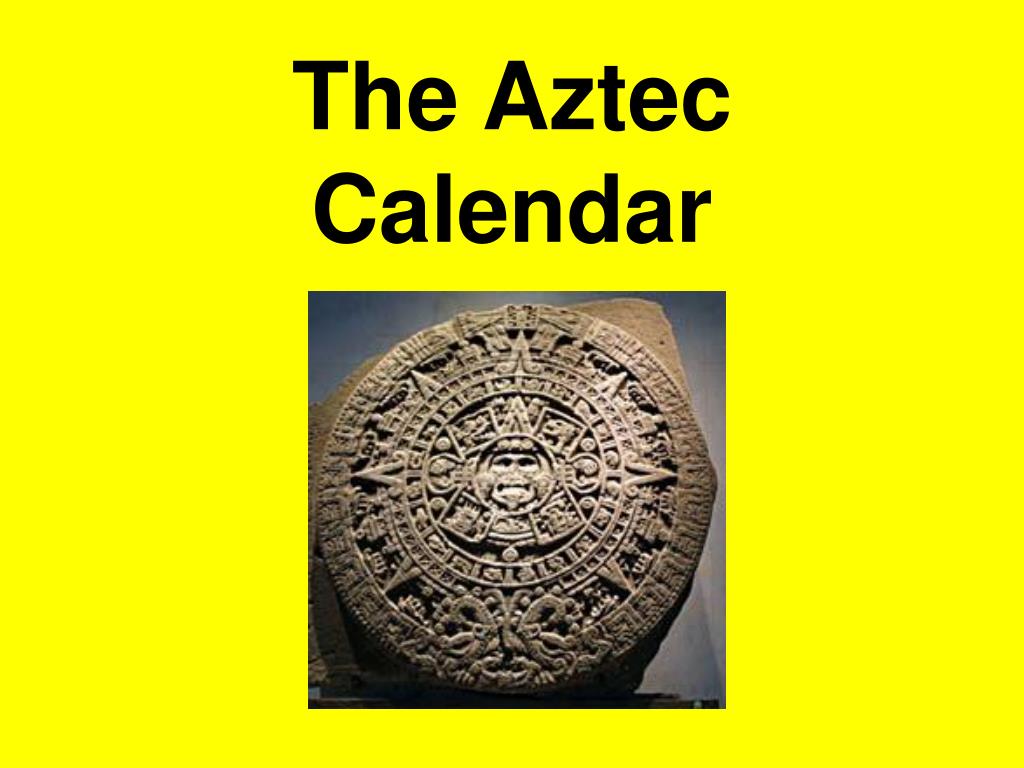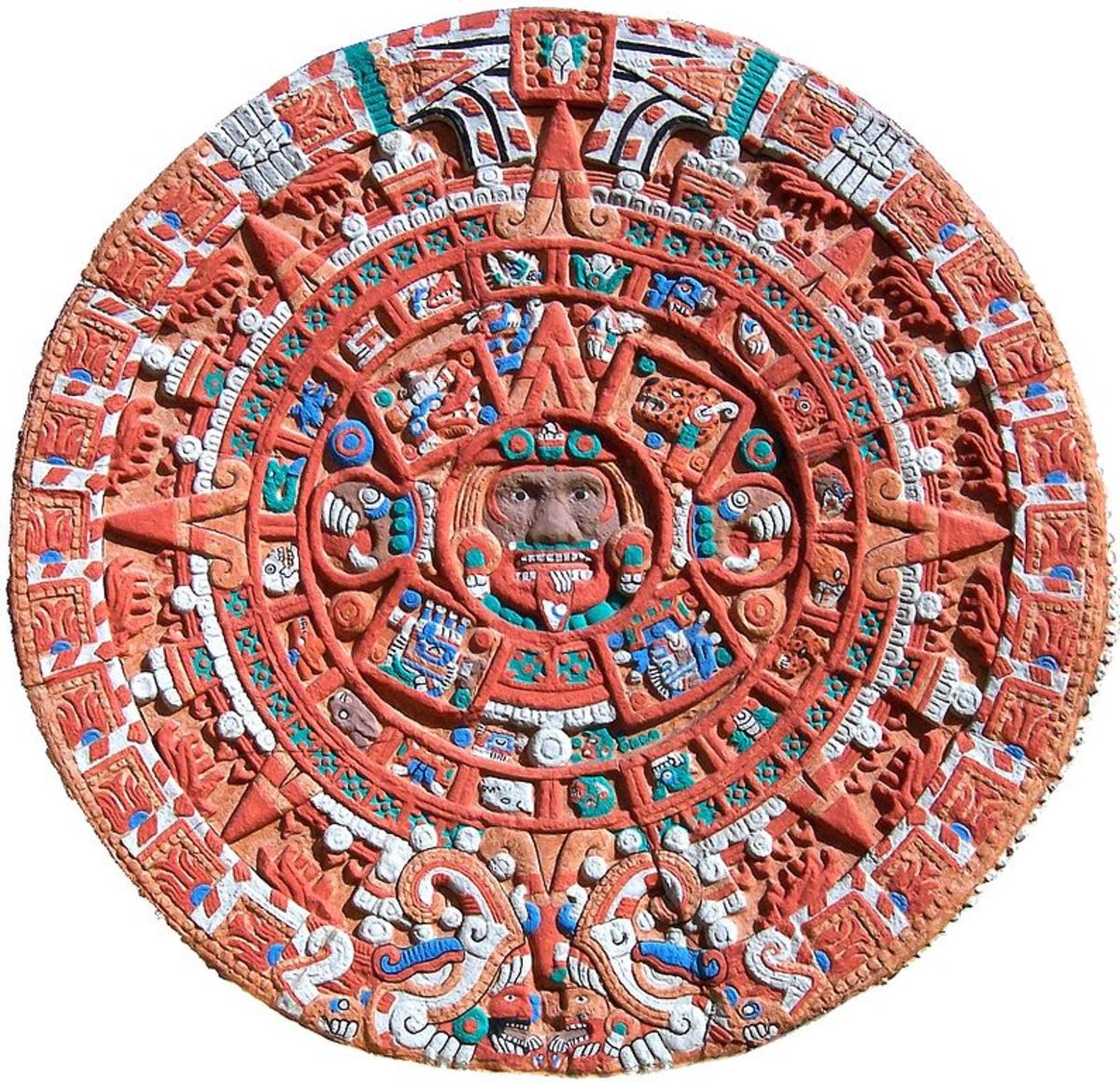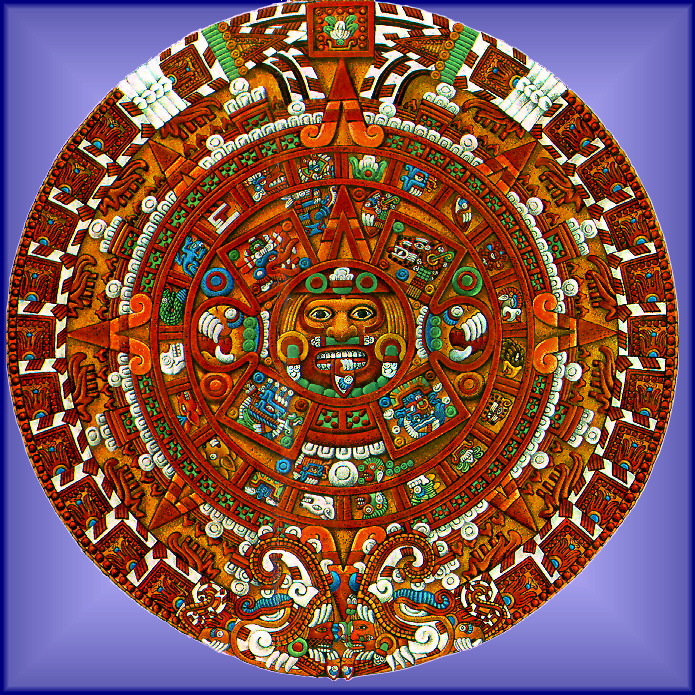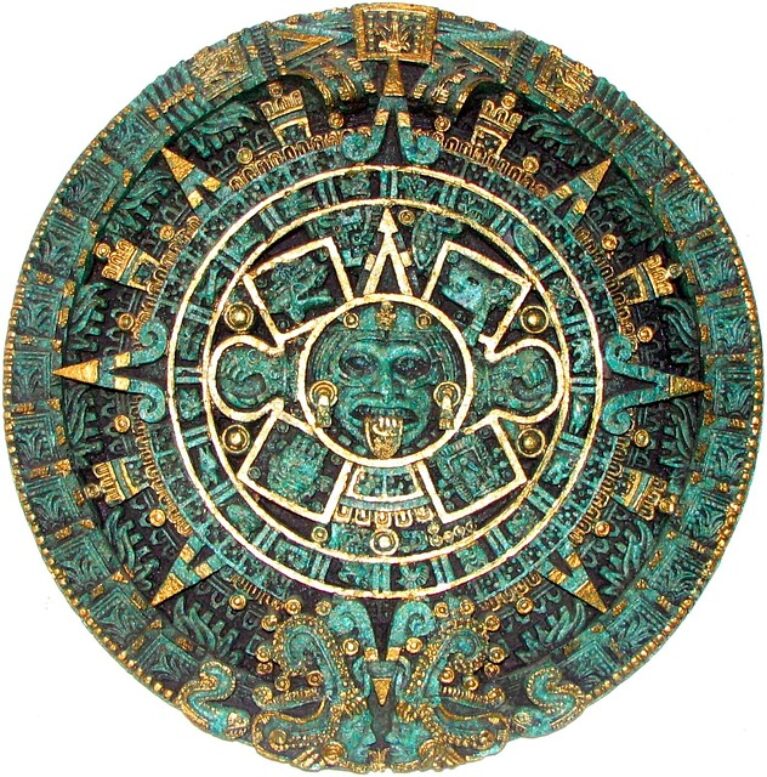Explain The Aztec Calendar
Explain The Aztec Calendar - Each day in the sacred round had a particular fate, and, as in most forms of astrology, an individual's fortune could be determined on the basis of her birth date. It is based on the aztec sun. The circular front panel, which has a huge diameter of around 11.5ft, displays eight concentric circles, on which appear various symbols. Web the aztec calendar is a dating system based on the mayan calendar that was used by the aztec people who lived in what is now central and southern mexico. Web the aztecs of ancient mexico measured time with a sophisticated and interconnected triple calendar system which adhered to movements of the celestial bodies, provided a. The xiuhpohualli, which tracked the solar year, and the tonalpohualli, which followed the sacred calendar of 260 days. These calendars were not only used for tracking time but also for understanding the cyclical nature of the universe and predicting future events. Web aztec calendar stone. They were used to equate the. Web the aztec calendar stone, better known in the archaeological literature as the aztec sun stone (piedra del sol in spanish), is an enormous basalt disk covered.
The circular front panel, which has a huge diameter of around 11.5ft, displays eight concentric circles, on which appear various symbols. The aztec calendar most of us recognize is the xiuhpohualli, a disc with concentric rings of symbols. Web the aztecs of ancient mexico measured time with a sophisticated and interconnected triple calendar system which adhered to movements of the celestial bodies, provided a. Web the aztec calendar, often referred to as the mesoamerican calendar, is not a single system but rather a combination of two distinct but interlocking calendars: It is based on the aztec sun. Web there are two aztec calendars, that is to say, two measurements of time: Web what is the aztec calendar? Web the aztec calendar system is a complex set of interrelated calendars used by the aztec civilization to organize their agricultural, religious, and social activities. Web the aztec calendar stone, better known in the archaeological literature as the aztec sun stone (piedra del sol in spanish), is an enormous basalt disk covered. Web the aztec calendar represents 260 days of thirteen months (each containing twenty days) that determined the life of each mexica (aztec).
In aztec society, priests would. Web the aztecs developed two types of calendars: The most famous representation of the sacred round is the aztec calendar stone. Web the aztec calendar is a dating system based on the mayan calendar that was used by the aztec people who lived in what is now central and southern mexico. The aztec sun stone, also called the calendar stone, is on display at the national museum of anthropology in mexico city. Web aztecs used a sophisticated calendar system for the calculation of ordinary days and religious ceremonies. Web what is the aztec calendar? Web the aztec calendar, often referred to as the mesoamerican calendar, is not a single system but rather a combination of two distinct but interlocking calendars: Web the aztec calendar system is a complex set of interrelated calendars used by the aztec civilization to organize their agricultural, religious, and social activities. Web the aztec calendar, also known as the sun stone, is a monumental sculpture which weighs a mammoth 24,590kg and slightly over 3ft thick.
PPT The Aztec Calendar PowerPoint Presentation, free download ID
The basic structure of aztec calendar was also used by other. In aztec society, priests would. Web the aztec calendar stone, better known in the archaeological literature as the aztec sun stone (piedra del sol in spanish), is an enormous basalt disk covered. Web the aztec calendar is a dating system based on the mayan calendar that was used by.
The Aztec Calendar Symbols, Meanings, Reading, and More Owlcation
The xiuhpohualli, which tracked the solar year, and the tonalpohualli, which followed the sacred calendar of 260 days. Web the aztec calendar, also known as the sun stone, is a monumental sculpture which weighs a mammoth 24,590kg and slightly over 3ft thick. The circular front panel, which has a huge diameter of around 11.5ft, displays eight concentric circles, on which.
Introduction to the Aztec Calendar
Web there are two aztec calendars, that is to say, two measurements of time: Web the aztecs developed two types of calendars: The circular front panel, which has a huge diameter of around 11.5ft, displays eight concentric circles, on which appear various symbols. Web aztecs used a sophisticated calendar system for the calculation of ordinary days and religious ceremonies. These.
Aztec calendar Wikipedia
The basic structure of aztec calendar was also used by other. The xiuhpohualli, or year count, which was used as a civil and agricultural calendar,. It is based on the aztec sun. The aztec sun stone, also called the calendar stone, is on display at the national museum of anthropology in mexico city. The most famous representation of the sacred.
A tourists guide explain the Aztec Calendar using a reproduction in the
The basic structure of aztec calendar was also used by other. Web the aztec calendar system is a complex set of interrelated calendars used by the aztec civilization to organize their agricultural, religious, and social activities. Web what is the aztec calendar? Web there are two aztec calendars, that is to say, two measurements of time: Web aztec calendar stone.
The Aztec Calendar Importance, Use, and Relevance Symbol Sage
Web the aztecs of ancient mexico measured time with a sophisticated and interconnected triple calendar system which adhered to movements of the celestial bodies, provided a. Web the aztec calendar, also known as the sun stone, is a monumental sculpture which weighs a mammoth 24,590kg and slightly over 3ft thick. Web aztec calendar stone. The basic structure of aztec calendar.
Close up of Aztec calendar stone carving Stock Photo Dissolve
Web the aztecs used a sacred calendar known as the tonalpohualli or “counting of the days.” this went back to great antiquity in mesoamerica, perhaps to the olmec civilization of. Web the aztecs actually used three calendars that were probably developed by the one of the earliest of the mesoamerican people, the olmecs. In aztec society, priests would. Web the.
Aztec Calendar
Web the aztec calendar system is a complex set of interrelated calendars used by the aztec civilization to organize their agricultural, religious, and social activities. It is one of the mesoamerican calendars, sharing the basic structure of calendars from throughout the region. Web what is the aztec calendar? These calendars were not only used for tracking time but also for.
Aztec calendar Mesoamerican, Tonalpohualli & Sun Stone Britannica
They were used to equate the. The xiuhpohualli, which tracked the solar year, and the tonalpohualli, which followed the sacred calendar of 260 days. It is based on the aztec sun. In aztec society, priests would. Web the aztec calendar system is a complex set of interrelated calendars used by the aztec civilization to organize their agricultural, religious, and social.
CNCnutz Making an Aztec Calendar Part 1 Episode 149
Web the aztec calendar is a dating system based on the mayan calendar that was used by the aztec people who lived in what is now central and southern mexico. The aztec sun stone, also called the calendar stone, is on display at the national museum of anthropology in mexico city. It is one of the mesoamerican calendars, sharing the.
Web The Aztecs Developed Two Types Of Calendars:
Web the aztec calendar, also known as the sun stone, is a monumental sculpture which weighs a mammoth 24,590kg and slightly over 3ft thick. The xiuhpohualli, which tracked the solar year, and the tonalpohualli, which followed the sacred calendar of 260 days. Web the aztec calendar, often referred to as the mesoamerican calendar, is not a single system but rather a combination of two distinct but interlocking calendars: Web the aztec calendar is a dating system based on the mayan calendar that was used by the aztec people who lived in what is now central and southern mexico.
The Basic Structure Of Aztec Calendar Was Also Used By Other.
The xiuhpohualli, or year count, which was used as a civil and agricultural calendar,. Web aztec calendar stone. Web there are two aztec calendars, that is to say, two measurements of time: Each day in the sacred round had a particular fate, and, as in most forms of astrology, an individual's fortune could be determined on the basis of her birth date.
The Circular Front Panel, Which Has A Huge Diameter Of Around 11.5Ft, Displays Eight Concentric Circles, On Which Appear Various Symbols.
It is based on the aztec sun. Web aztecs used a sophisticated calendar system for the calculation of ordinary days and religious ceremonies. Web the aztecs of ancient mexico measured time with a sophisticated and interconnected triple calendar system which adhered to movements of the celestial bodies, provided a. Web the aztecs used a sacred calendar known as the tonalpohualli or “counting of the days.” this went back to great antiquity in mesoamerica, perhaps to the olmec civilization of.
Web The Aztec Calendar System Is A Complex Set Of Interrelated Calendars Used By The Aztec Civilization To Organize Their Agricultural, Religious, And Social Activities.
The most famous representation of the sacred round is the aztec calendar stone. Web what is the aztec calendar? Web the aztec calendar represents 260 days of thirteen months (each containing twenty days) that determined the life of each mexica (aztec). Web the aztecs actually used three calendars that were probably developed by the one of the earliest of the mesoamerican people, the olmecs.









